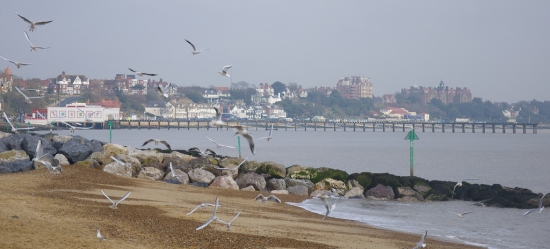The high street may be experiencing a much-needed boost in popularity, but the situation is not yet so secure that competition from out of town will be welcomed. As such, small retailers in the coastal town of Felixstowe are facing a potential loss of business should Tesco construct one of their trademark superstores at Walton Green.

The supermarket giant has admitted that its research indicated the town centre would suffer as a direct result of the superstore – to the tune of a £4 million per annum drop in spending, no less. Therefore, Felixstowe Chamber of Trade is keen to put in place a legal agreement called a section 106 which will force Tesco to make cash contributions for improvements in the town centre.
Chairman of Felixstowe Chamber of Trade, Andrew Rowdon, made it clear that Tesco would be expected to contribute to the town’s retail industry success in the long term should it wish to set up shop.
He said; “What we don’t want is a legal agreement that is a five minute fly by night thing.
“We are looking at a fair chunk of money here and the object would be to secure a three to five year plan; action for the long term.”
Any money Tesco invested in Felixstowe would be used purely for improvements to the town, focusing particularly on the retail industry. Mr Rowdon revealed that web-based marketing plans and the possibility of promoting special events held in the town centre had already been discussed within the Chamber in case Tesco do gain planning permission for the superstore.
Also expected to benefit from a section 106 agreement with Tesco would be areas frequently visited by the public and visitors to the resort. Pavements would be cleared and repaired, shop fronts re-painted and modernised, lighting would be upgraded and provisions for art displays created by residents of the town would be made.
Of course, these improvements would undoubtedly be pleasant, but could they make up for the loss of profits suffered by retailers in the centre of town?
Spokesman Simon Petar, of Tesco’s corporate and legal affairs department, was keen to reiterate that discussions regarding the Walton Green store and potential repercussions are still at a “very early stage.”
He said; “Tesco wants to work together with the town centre.
“Walton Green will encourage more people to shop closer to home and it’s a great opportunity to improve the town centre and make a practical difference.
“One meeting has taken place between ourselves and the chamber over what might be included in a section 106 agreement, completely without prejudice.”
Do you think towns should fight the development of supermarkets which could draw business away from their high streets, or would it be more beneficial to both parties to put a section 106 agreement in place in the majority of cases? Which way do you think Felixstowe should go in this debate?